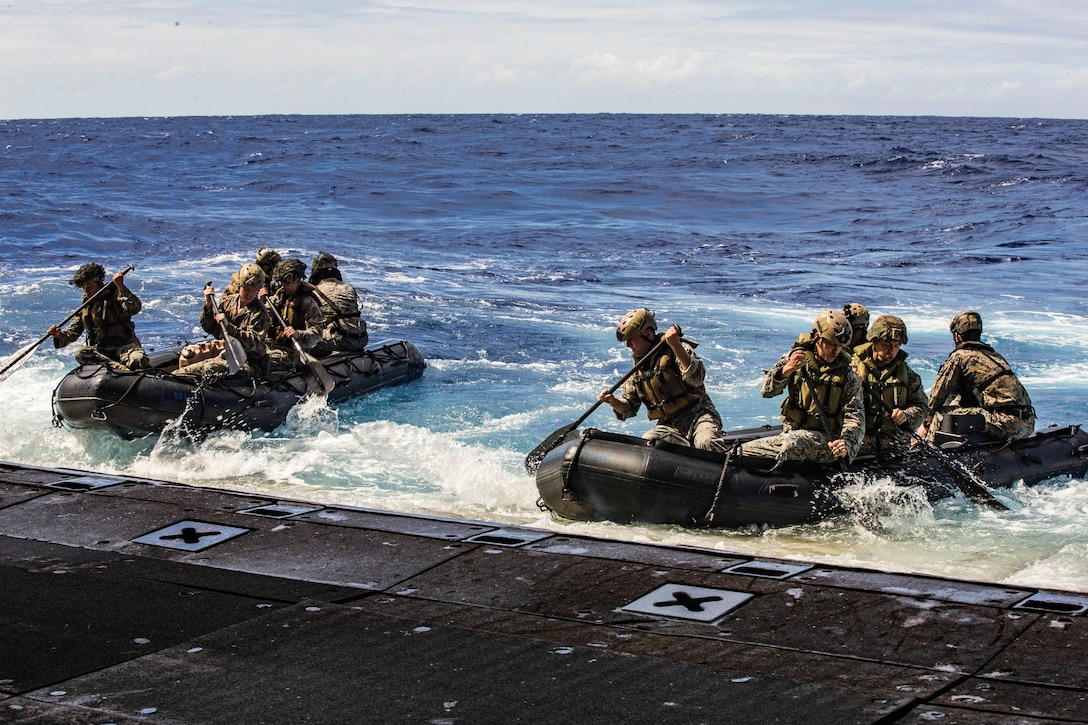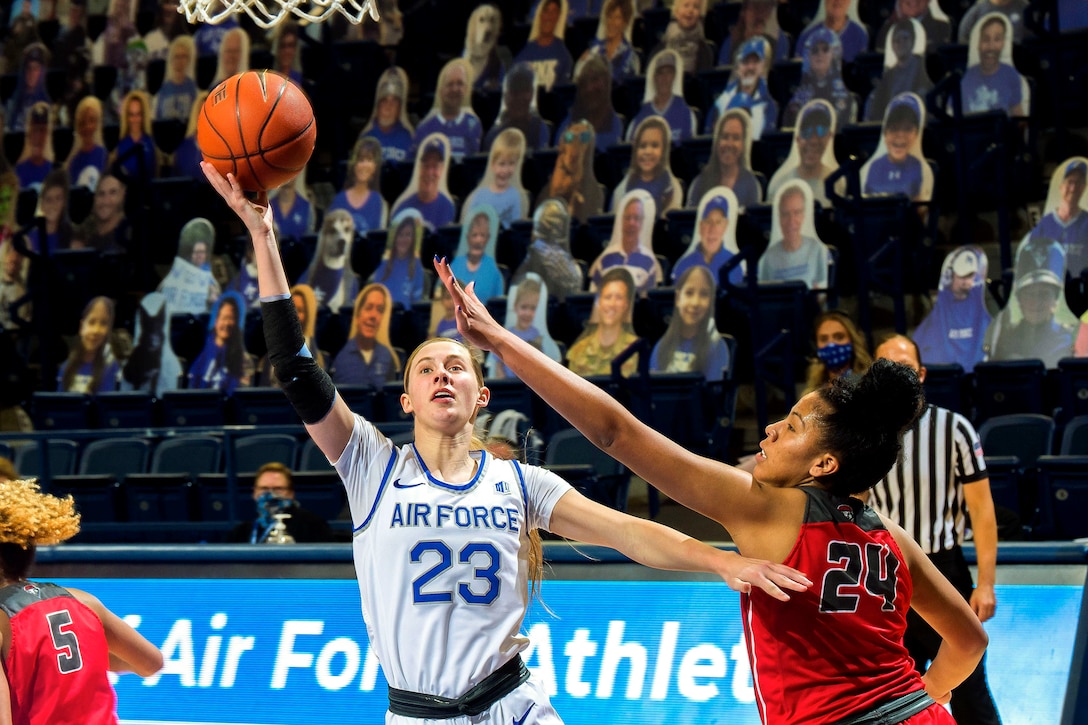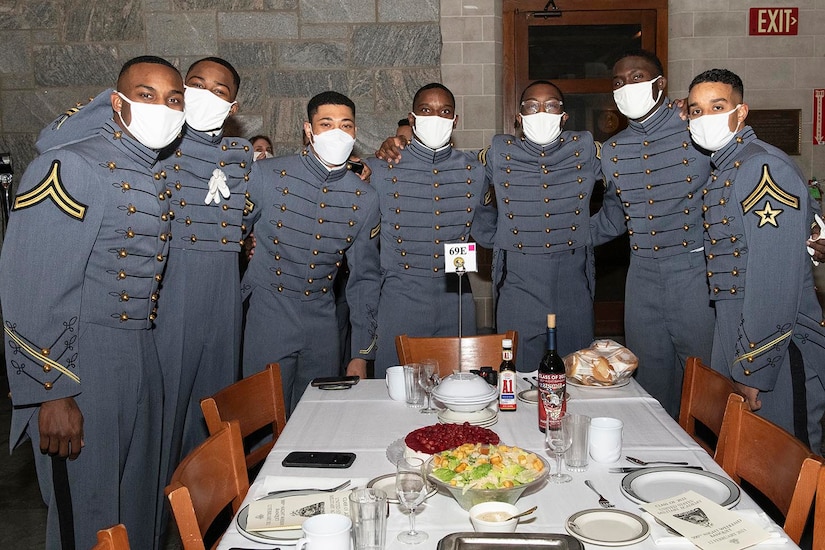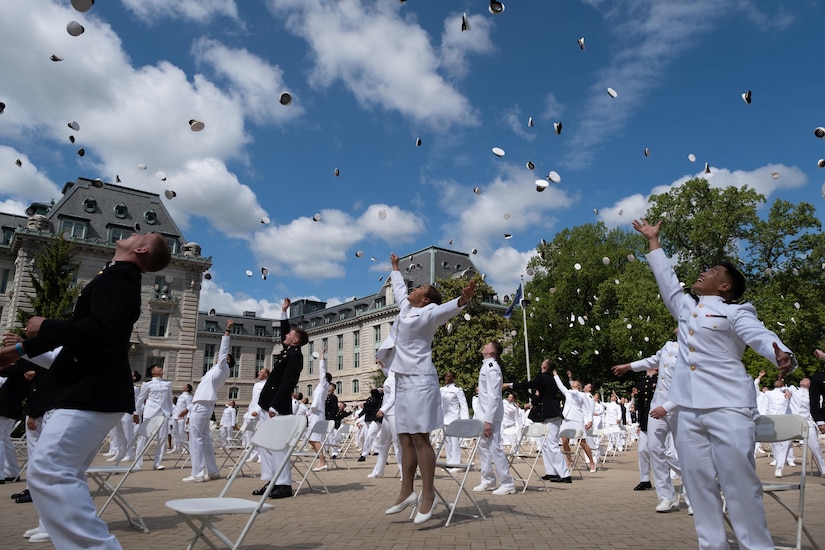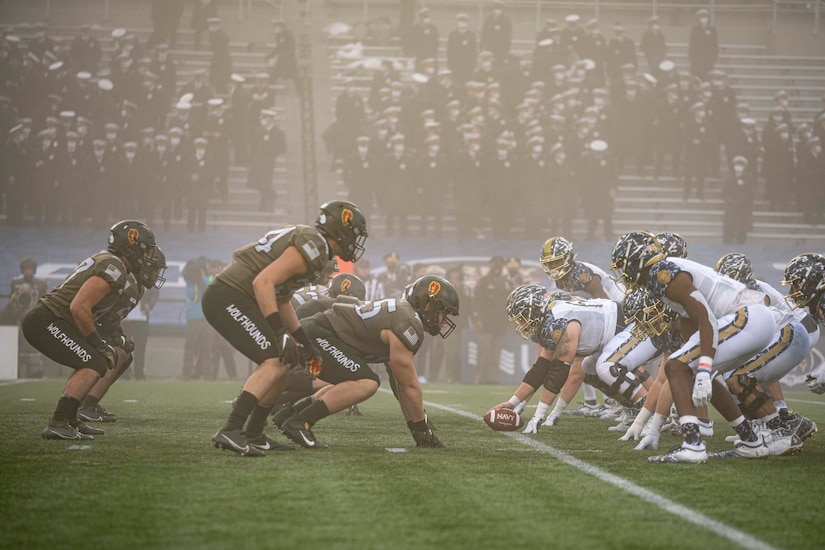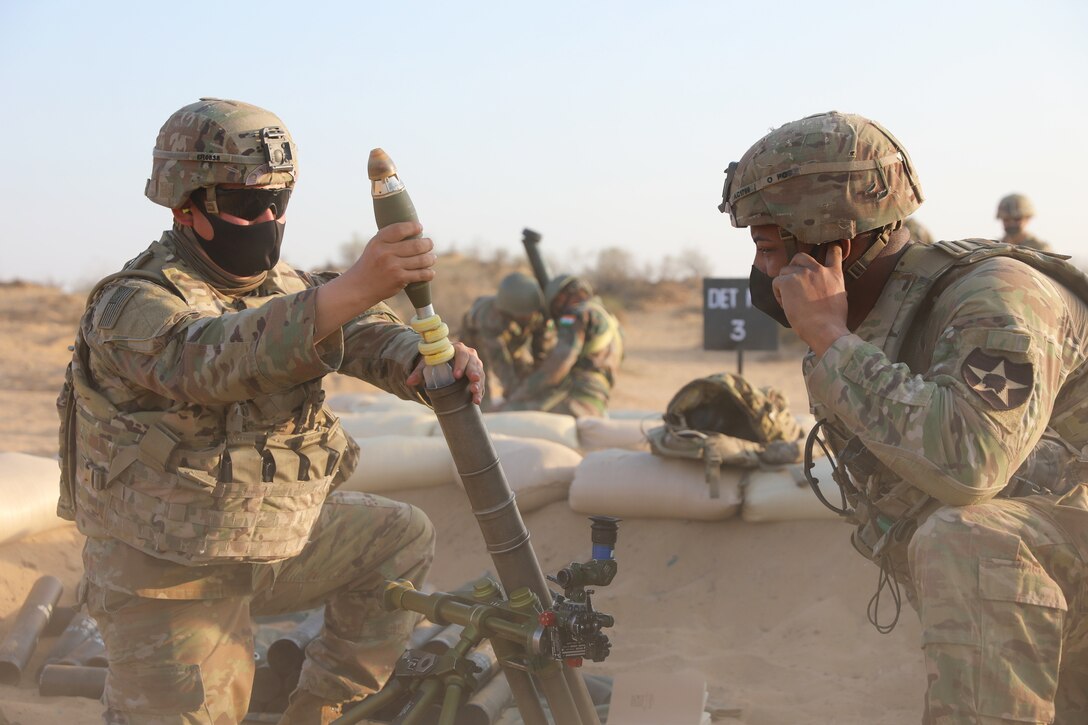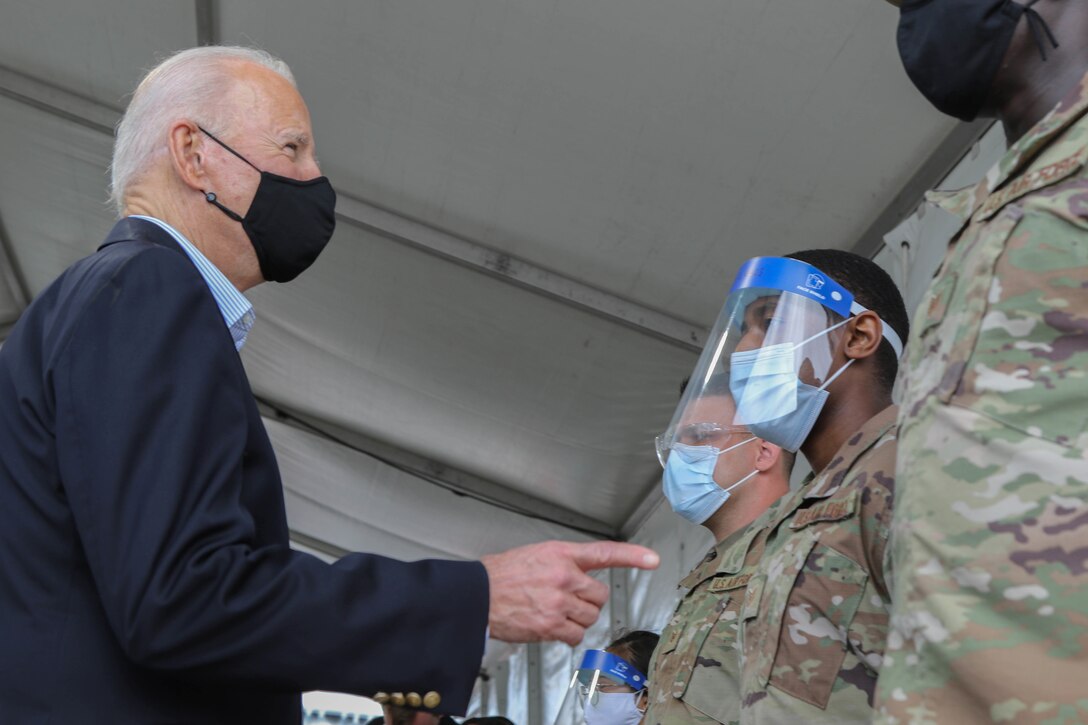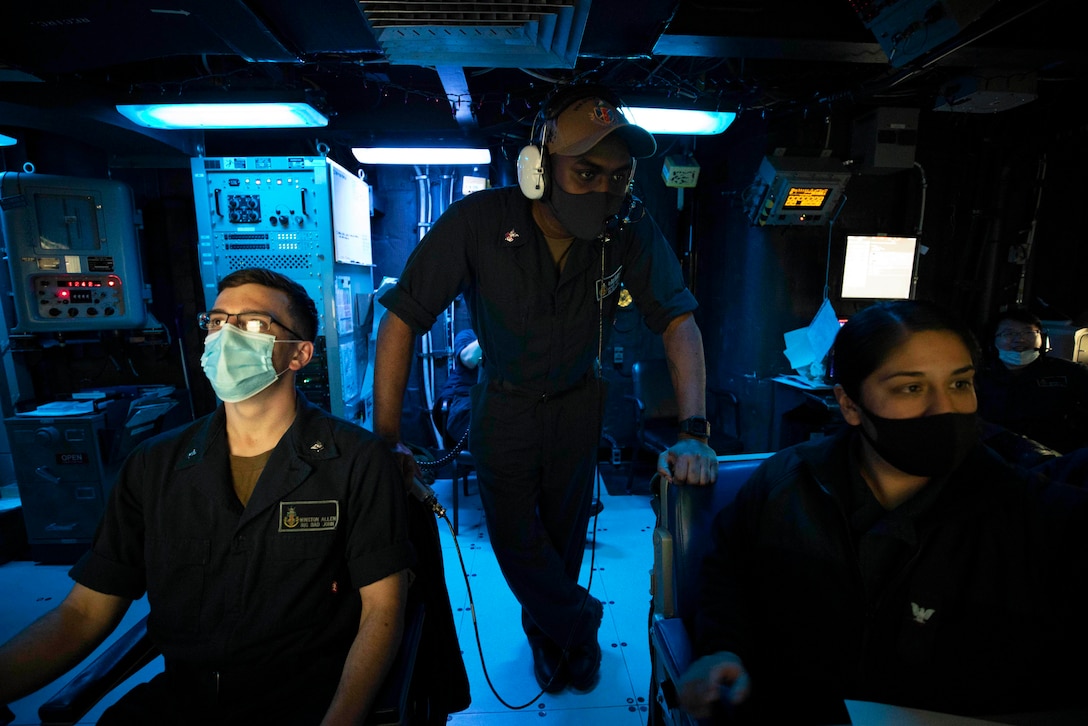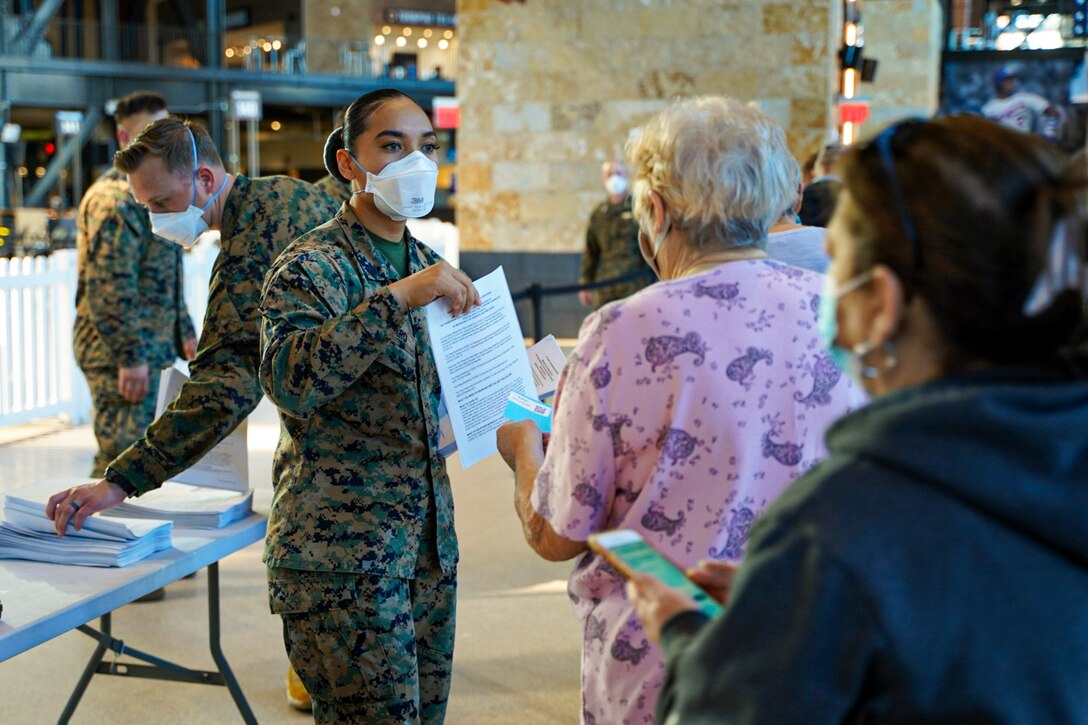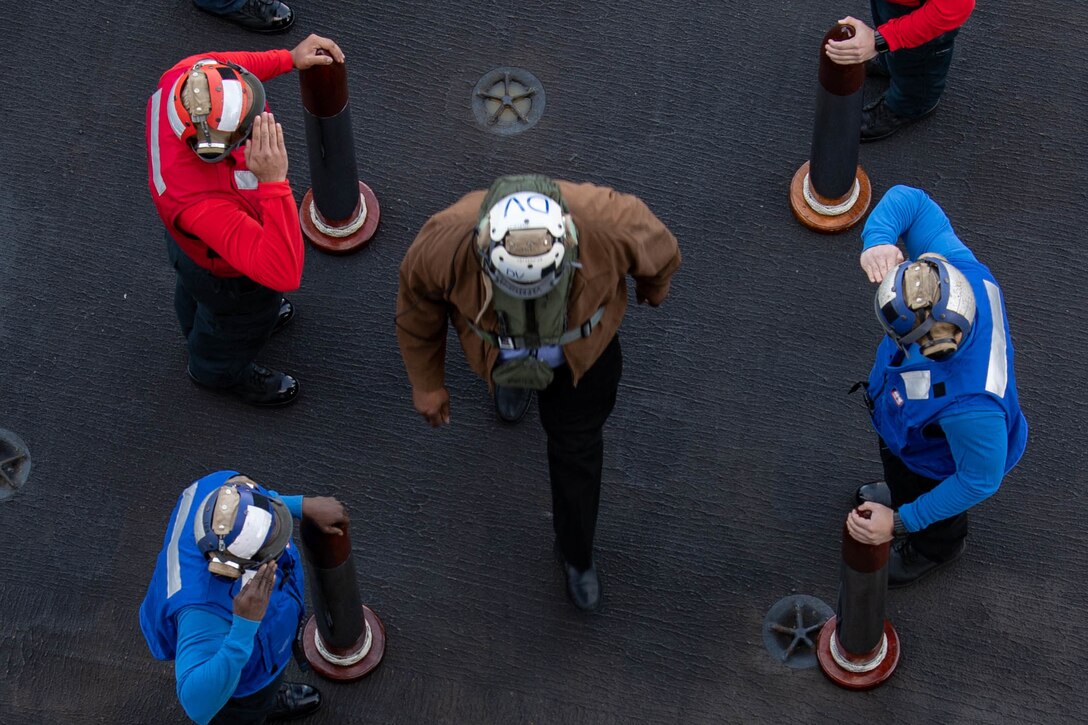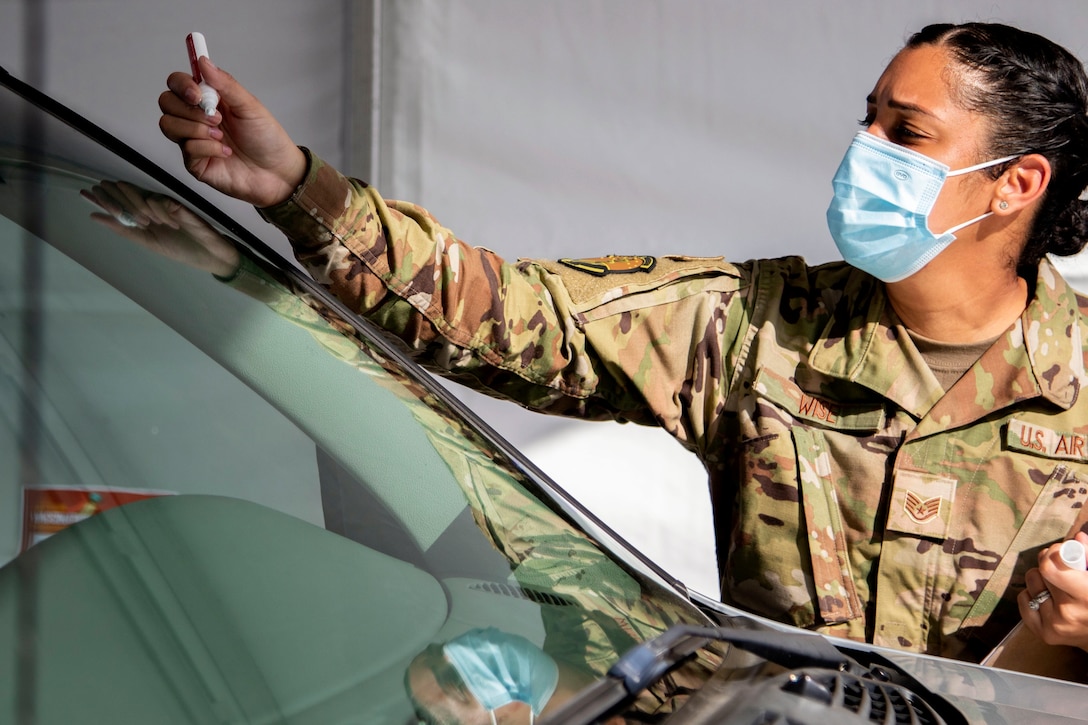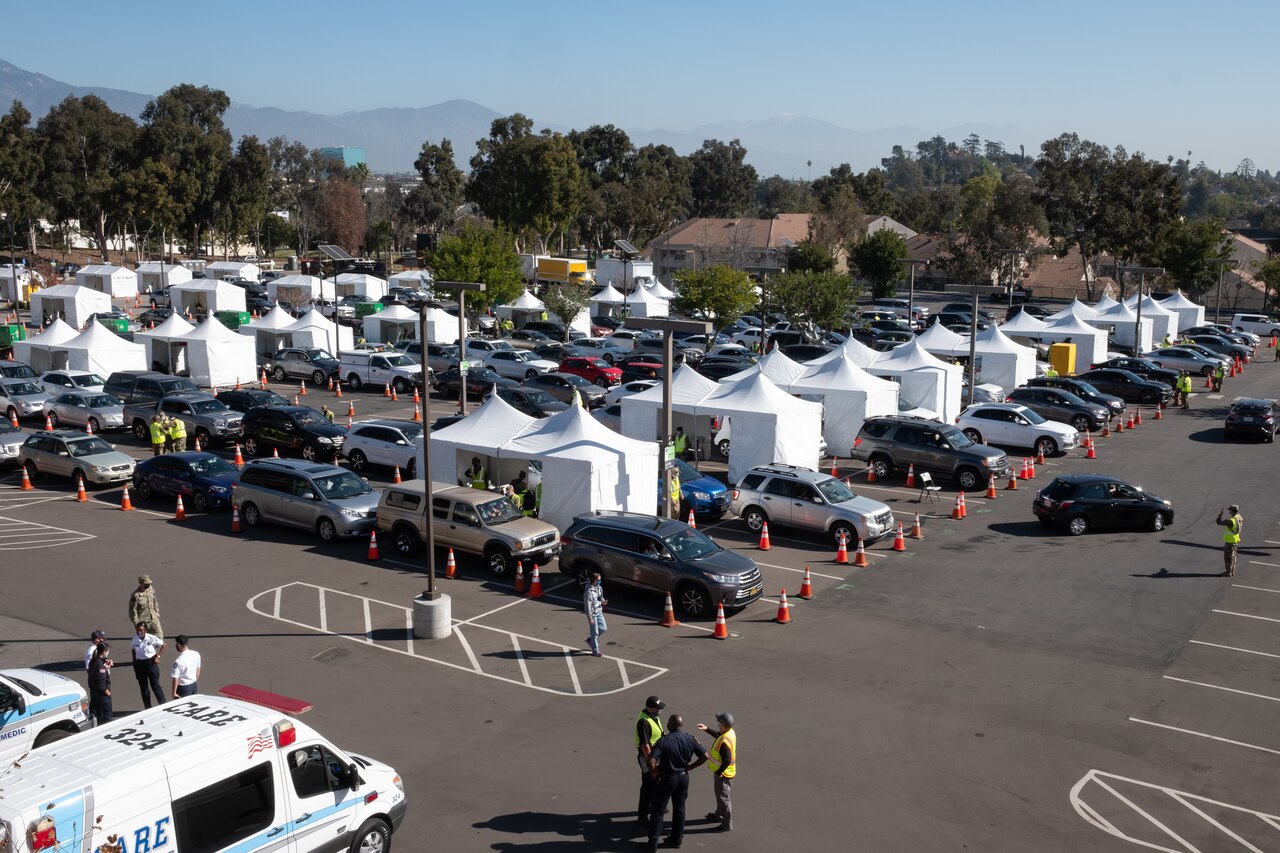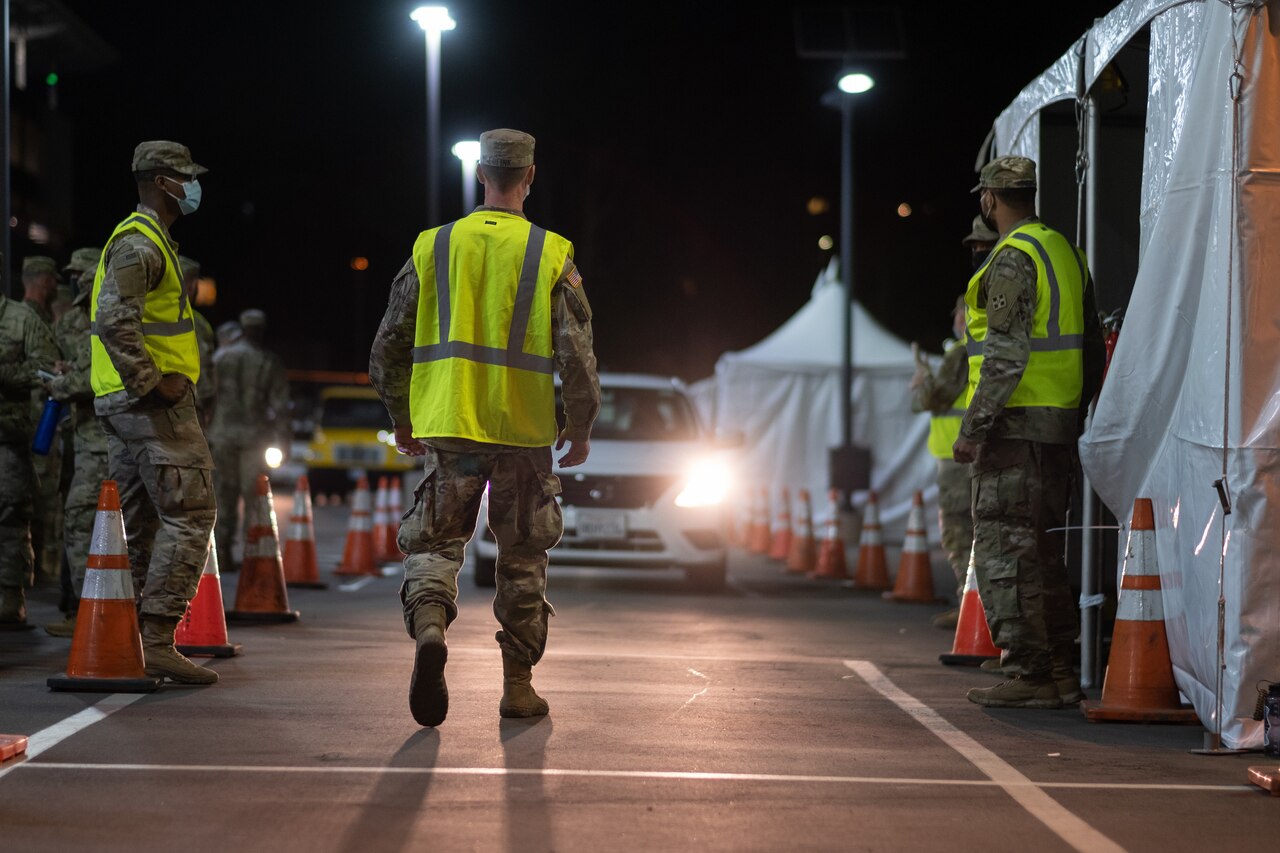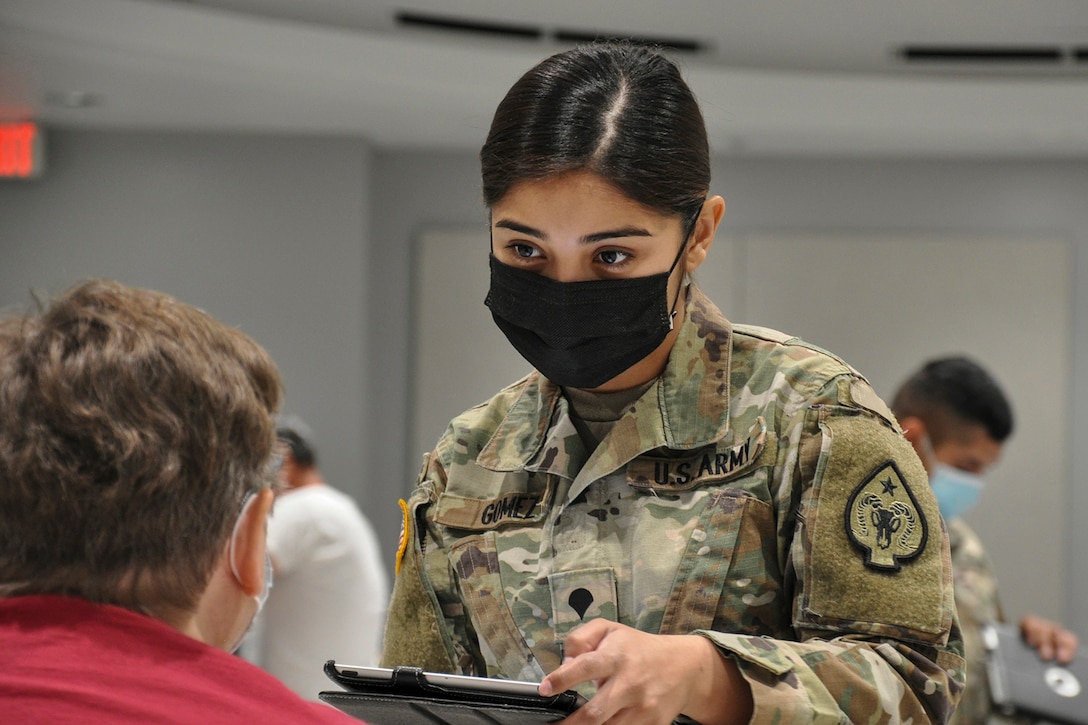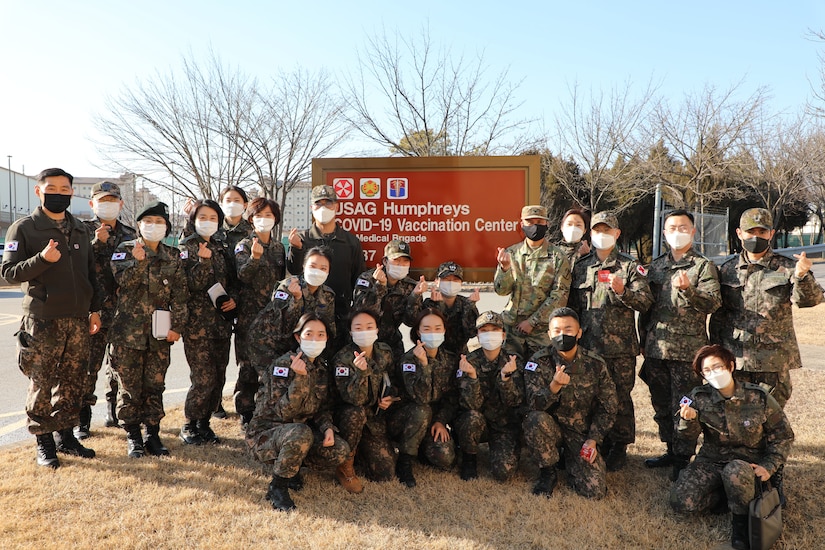Pentagon Press Secretary John F. Kirby
PRESS SECRETARY JOHN F. KIRBY: Good afternoon, everybody. Sorry for being a couple minutes late here.
Okay, just a couple of things at the top, if you don't mind. Right
now as we speak, the secretary is upstairs to -- for the very first
meeting of the Defense Department China Task Force. He's providing some
initial guidance to an outstanding team of 20 civilian and military
experts from across the department, including the Office of the
Secretary of Defense, the Joint Staff, each of the Armed Services,
combatant commands, and intelligence community.
Today's meeting is intended to formalize the mission, timing, and
outputs of the task force as they work towards a baseline assessment of
department's policies, programs, and processes on China-related
matters. That assessment will then inform the core objective of the
task force, which is to identify a discrete set of top priorities and
provide the secretary with specific and actionable recommendations and
milestones to meet the China challenge.
As a reminder, this is what we're calling a sprint effort that will
conclude in less than four months. The task force will be working with
our interagency partners and consulting with Congress on a bipartisan
basis throughout the process. Much of their findings will be classified
-- I think we've talked about that before -- but we'll provide you
updates as we can.
On Ukraine, today, the department is announcing a new $125-million
package for the Ukraine Security Assistance Initiative, which includes
training, equipment, and advisory efforts to help Ukraine's forces
preserve the country's territorial integrity, secure its borders, and
improve interoperability with NATO. This action reaffirms the U.S.
commitment to providing defensive lethal weapons to enable Ukraine to
more effectively defend itself against Russian aggression. We'll be
releasing more details later today about this, so stay tuned for that.
On the personnel front, we on-boarded another four employees here
this morning, bringing our total to 82. Among these joining the team is
Lindsey Ford, Deputy Assistant Secretary of Defense for South and
Southeast Asia.
And, all right -- take some questions. I think Bob, you're on the phone.
Q: Thank you. John, do you have any updated damage assessment from
the air strike last week in Syria, including civilian casualties that
you -- you referenced? And also, a related question about the
subsequent event in the Gulf of Oman, where Israel -- Israel is now
saying that Iran was responsible for that explosion aboard the ship, and
I'm wondering whether the U.S. has any evidence to support the claim
that Iran was responsible.
MR. KIRBY: On the second question, Bob, I would point you to Israeli
authorities to speak to that, since this -- the -- the ship belonged to
them. They've -- I know they've already been out there on that. I -- I
don't have any intelligence assessments on that to speak to at the
podium today.
On the -- on the battle damage assessment, we've obviously seen a lot
of reporting out there on numbers of casualties from Thursday's
strike. What I can tell you is that we believe right now there was
likely one militia member -- member killed and two militia members
wounded. And we'll continue to assess, as you know we do, and if that
changes, we'll certainly let you know. But as of today, we assess one
killed and two militia members wounded.
Okay, go ahead in the room. Tom?
Q: I wanted to ask a little bit more about the stand-down. In the
documents the Pentagon put out, it says service members must reject
active participation in extremist organizations. But still, mere
membership is allowed? And will you look into that, and maybe banning
mere membership? And is that something you can do, or is that something
Congress will have to weigh in on?
MR. KIRBY: No, that's certainly within the secretary's authority to
make that call, if -- if he wants to. But you're right, and we've
talked about this before. Membership alone is not prohibited right now,
but it is something -- and I think the secretary has spoken to this --
that he is certainly willing to look at and -- and to ask the question
of the services as -- as we move forward on this, about whether or not
membership alone would also be prohibited. It -- it isn't right now.
What we continue to say is that activity, based on this -- this kind
of extreme ideology that is prejudicial to good order and discipline
and/or harms fellow teammates obviously can be punishable under the
Uniform Code of Military Justice, and that's still the case.
Q: Is he going to wait 'til after the stand-down to gather information and make a decision on that?
MR. KIRBY: I don't want to get ahead of the secretary's timing on
this. Certainly, as we've said, one of the reasons he wanted to do the
stand-down was to solicit feedback from -- from the -- the troops and --
and so he -- he certainly wants to get that over the next month or so,
but I wouldn't get ahead of timing on decisions he may or may not make.
Let's see, Phil Stewart, Reuters?
Q: Hey, John. Real quick, the Saudis are saying that there is a new
exercise that's been started with the Air Force Dragon -- the exercise
name is "Dragon," they're saying -- was this -- just wondering whether
this was pre-planned, do you have any information about it, whether or
not this was in any way meant to show support for the Saudi military
after the events last week and the release of the Khashoggi report?
Thanks.
MR. KIRBY: I don't have any details on that particular exercise,
Phil. But just broadly speaking -- I'm just looking to see that I don't
have anything specific on that exercise before I say that.
So let me take your question, and see if we have anything about it that we can speak to. I have not seen anything on it.
But just broadly speaking, as we said before, we recognize that Saudi
Arabia is a strategic partner in the region that we have obligations
and commitments to help Saudi Arabia defend itself against attacks,
which continue to happen from across that southern border with Yemen,
and we take those responsibilities seriously.
We do have a strong military-to-military relationship with Saudi
Arabia, and I would expect you to see that that relationship continues
for all the right reasons.
But as for that specific exercise, Phil, I'm going to have to get back to you.
Barb?
Q: I want to follow up on that. Now that the report has been made
public to the world, saying that Mohammed bin Salman is -- was behind
the killing of Mr. Khashoggi, what is -- what impact will there be, if
any, on the U.S.-Saudi military relationship? Will there be any impact?
And if not, then what leverage does the U.S. military have to, other
-- given his position in the country over their military, what leverage
do you have then with other militaries around the world, that your
relationship with them depends on their human rights records and not
committing, you know, murders? What leverage do you have or will your
relationship be impacted?
MR. KIRBY: Well, I won't get ahead of decisions that have or haven't
been made inside the military-to-military relationship that we have in
Saudi Arabia. It remains robust, as it should remain robust.
But -- and the -- the issues over sanctions and -- and repercussions
in -- in light of Jamal's murder certainly remain an issue more for the
White House and the State Department to speak to.
Except to say that we do -- when we have military relationships
around the world, we certainly do make sure that they comport with the
law -- because there are legal restrictions about some military support
when it comes to rule of law and extrajudicial activity. We make sure
that those relationships comport with the law and with our own values
and standards.
But I won't get ahead of decisions yet that haven't been made.
Q: Well, then let me follow up. Are you saying there are decisions
on the table that simply they're -- on the table, where final decisions
have not been made? Are any of these matters even on the table? And --
for the Pentagon.
And still find myself confused. If the U.S. military does not engage
in relationships with countries that engage in extrajudicial killing
and violation of human rights --
(CROSSTALK)
MR. KIRBY: -- say that, Barb, that we don't -- I mean, that -- but
there are certain legal limits to the kinds of support we can give to
other militaries under the law, the Leahy law. I'm not foreshadowing
anything in this case, and don't read into my answer that -- that I'm
sort of signaling to you that there are some decisions about to be made,
that's not what I meant at all.
Just that right now, I know of no changes to the military-to-military
relationship. Broadly speaking -- and my White House colleague spoke
to this last week -- certainly the relationship from a bilateral
perspective with Saudi Arabia is going to be different under this
administration than it was under the last, and certainly that difference
is going to be informed by what we now know the intelligence report
says.
Militarily speaking, we have obligations there, in Saudi Arabia, and
we're going to continue to meet those. I don't have anything specific,
and I'm not signaling that there's going to be.
Does that answer your question? Okay.
Let's see, Luis Martinez?
Q: Hey, John. You referred to the China effort -- China task force
as a sprint effort. The Global Posture Review is still going on. How
would you characterize that, as a super-sprint? And when can we expect
analysis of that with regards to Afghanistan, please, thanks.
MR. KIRBY: The -- I don't know that I would call it a super-sprint.
The Global Posture Review, we do expect to be completed by mid-year, so
in the summer timeframe. Everybody's working hard on that, I'm not --
won't get ahead of that.
The China task force is really about policies, programs, and
procedures with respect to how the department treats the China
challenge. And it is nested in, and will be helping form, the larger
whole-of-government approach to China.
And clearly, it's going to be looking at China from our unique
perspective at the Defense Department. There are other agencies across
the government that also have bilateral issues, whether it's trade,
intellectual property, economic, certainly diplomatic. They'll be
looking at that relationship from their own perspective.
What the secretary wants Mr. Ratner to do is to look at the pacing
challenge that China poses to the department from our perspective, and
what do we need to do to make sure we're ready to meet that challenge.
So it's not part of the Global Posture Review. Could something that
they come up with help inform that review? That's certainly possible, I
won't get ahead of that. But it is a separate and distinct process.
And I think you asked about Afghanistan, I don't have any updates on
that at all. There is an interagency review going on right now, as
we've talked about, to look at the Doha agreement, to look at the
compliance with that agreement, to consider what -- what decisions we
need to make, what’s in the best national security interests of the
United States and the American people with respect to Afghanistan, and
we're just not there yet.
Tara?
Q: Thanks.
Back to extremism, as part of the stand-down, the Navy is requiring
all its sailors to retake the oath of enlistment, and I was wondering if
the secretary has recommended to the other services that they also have
their members retake their oath.
And then I have a follow-up.
MR. KIRBY: I know of no direction that he's given to the other
services to do that, but he's supportive of the Navy's direction in that
regard. And if you looked at the video, he specifically asked service
members -- the whole workforce -- to think about their oath as they
think about this stand-down. But I know of no such direction to the
other services to do that.
Q: Okay. And then secondly, as you know, the recruiting commands
play an important role in this too. Is the secretary going to reach out
separately to them? I was looking in the guidance. And while there's
general guidance, overall, there's not specific for recruiters or for
recruiting commands on how to actually weed out potentially extremists
before they ever join.
MR. KIRBY: I don't -- I don't -- I know of no plans for him to reach
out specifically point-to-point for -- at his level to each recruiting
command, but he has talked to the chiefs and the acting service
secretaries about -- in fact, they brought it up. There have been
mutual concerns on -- on both sides about the recruiting process and
asking ourselves if we've got this right. Are we doing enough of the
right kind of vetting for potential recruits before they come in? And
-- and are we able to catch that kind of activity, to include looking at
social media profiles?
There's a limit to what you can do legally, because before they sign
the dotted line and raise their hand and give that oath, they're private
citizens, so there's some limits there. But I -- they've all -- all of
them, including the secretary, have asked themselves, you know, "What
more could we be doing to try to be able to catch some of this behavior
before they -- they come in?"
And again, there's -- we have -- we have to assume that some people
are becoming radicalized after they get in, and so that's a whole other,
you know, set of issues that have to be dealt with. But I don't know
that he's -- but I know he hasn't specifically reached out to each
recruiting command of each of the services, but he has had that
conversation with the service secretaries and the service chiefs.
Q: Do you think it's part of the back-and-forth on what more can we
do in this initial screening? Will that be captured in any way? Are
the services going to come up with recommendations for their own
recruiting commands?
MR. KIRBY: I would let the services speak for themselves on that. I
mean, I -- I -- they -- it would be inappropriate for me to -- to -- to
speak for them here. Certainly, the secretary's interested in what
they learned and -- and he -- and he agrees with them that this is
something we should be looking at, is the -- the process of recruiting.
But -- but whether -- you know, what direction -- he hasn't given them
direction to come back to him on a specific point, except to say that it
is -- it's definitely a -- a -- an issue of concern, and I, again, I
would let them speak for each of them on how -- how they want to
approach the problem.
As you know, while each service has Title X responsibilities for
recruiting, they all do it a little differently, particularly now in a
COVID environment. Much -- a lot recruiting is done virtually for the
safety of potential recruits and our recruiters. Each service does that
differently, too. So again, the secretary doesn't want to be too
proscriptive in terms of how they handle the onboarding of new
personnel, except to say that he agrees with the -- the -- with the
chiefs and the secretaries that this is something that needs to be
focused on, yeah?
Okay, Caitlyn?
Q: Hello. My question is, last week, several senators asked for
installation-level vaccination rates to be publicly released, and Mr.
Salesses -- I hope I pronounced his name correctly -- said that the
request was reasonable and he would look into -- and look into it. Can
you provide any update on when this information will be publicized?
Thanks.
MR. KIRBY: Great question, Caitlyn. I don't have an update for you,
but -- but I -- I have spoken to Mr. Salesses, and he -- we are working
on -- on trying to get that information publicly releasable, and I -- I
suspect we'll be able to relatively soon. It's just we've got to --
we've got to work through the details of that.
Here in the room. Jen?
Q: John, back to the air strike in Eastern Syria. The militia
member who was killed, was he Iranian, or do you know the nationality?
MR. KIRBY: I don't.
Q: And the -- there's a report that the Iranians have revealed a new
drone that looks very similar to an American Predator. Do you have any
reaction to that? Is it stolen plans? Is that why it looks so similar
to an American Predator?
MR. KIRBY: Jen, I haven't seen the footage of that, or even heard a
report of that, so let me get back to you on that. I don't -- I don't
have a good answer for you today.
Yeah, Abraham?
Q: Yeah, on the damage assessment from that strike, you mentioned
casualty, but was there any assessment as to sort of, were weapons part
of that?
MR. KIRBY: I don't have any more detail than what I've given you,
which is the -- nine -- nine buildings destroyed, and then I've given
you the -- what -- what we know today to be personnel casualties: one
killed, two wounded.
Q: Could you respond to what some of the militant groups are saying
-- that this is just a pinprick? It has, really, no operational effect
on them.
MR. KIRBY: I haven't seen those comments. I would go back to what I
said last week, that this was really designed to do two things: to
remove that compound from their utilization of it as an entry control
point from Syria into Iraq; and two, to very -- send a very strong
signal that we're not going to tolerate attacks on our people and our
Iraqi partners.
Let me go down here to the phones. Sangmin?
Q: Thank you for giving me the chance to ask a question. I have a
question about the U.S. forces in Korea. So what is your position
regarding the restarting the large-scale of U.S.-South Korean joint
military exercise? And related to that, how is preparation going on,
the coming -- the spring exercise into March?
MR. KIRBY: I didn't get your last question. But before I ask you to repeat it, let me answer your first one.
As you know, we don't talk about the specifics of training events
there on the peninsula, except to say broadly, as we've said many times,
the training and readiness there is of utmost importance to the -- to
the secretary, to the entire military and to our alliance, which is, as
we said, linchpin in the region. And -- and the training events that we
are and will conduct are going to be in keeping with making sure we
maintain a high level of readiness.
Your second question?
Q: How is it going on, the spring military exercise practice between U.S. and South Korea?
MR. KIRBY: How is it going on?
Q: Yeah, and how -- how is preparation going on?
MR. KIRBY: Well, again, I won't speak to the details of -- of -- of
training there on the peninsula. Again, I would add, we have a very
close relationship, a serious alliance, security alliance with the
Republic of Korea. We take those obligations and responsibilities
seriously, and all the exercises and training events that we conduct on
the peninsula are done in lockstep with our Korean colleagues and -- and
allies.
Okay, here in the room. Yeah?
Q: John, about the Syria strike, so last week you said nine
buildings were destroyed, two buildings were partially destroyed, and
out of them, just two militias were killed, or one militias were killed
and two militias were wounded. Do you think that at some point the
strike was telegraphed to the group? Because such a large compound was
destroyed, and just two people were wounded and one was killed.
MR. KIRBY: I -- I'm not -- are you asking me if -- if you --
Q: Believe that somebody might have telegraphed the strike, the U.S. strike to --
MR. KIRBY: Oh, oh, oh, oh, oh. I -- we have no indication that that -- that that occurred. Okay?
Yeah?
Q: Yes, I have a two-part question on vaccinations. The first part
is, there's been numbers coming out that a third of service members are
refusing to get the vaccination. What is Secretary Austin doing to
motivate black service members or minority service members to want to do
it? Because a lot of the concerns are testing different vaccines on
black communities and the impact it's had. I know he mentioned speaking
with healthcare officials, but honestly as, you know, as an
African-American myself, you know, it's still in the back of our minds,
like, you know, kind of hesitant to do it. So that's the first
question.
And then secondly, do you feel it's going to impact the force if you
don't have service members getting the vaccination? How is that going
to impact them being able to deploy at a moment's notice if you have
those who are refusing to get it?
MR. KIRBY: So the secretary talked about this last week when we were
out in Los Angeles, and he was asked a question very similar to the one
that you just asked. And he's mindful that there are cultural and
community concerns in many -- with many people of color about the
vaccine. Some of it's based on -- on some painful history, and he --
and he mentioned that as well. That's one of the reasons he wanted to
go see that site, and to talk to people that were there.
As he said last week -- and I think you saw him say in his video --
he received the vaccine himself, and he felt it was important to let
people know that he looked into it, he talked to his doctor, he talked
to his family, and decided it was the right thing to do for him.
And what he believes -- and he said this also, very, I think,
plainly, was that he believes we in the department need to do a better
job providing the right kind of information and context, or at least
getting people pointed to the right context and information about the
vaccine, so that they can make similar decisions for themselves, talk to
their doctors, ask about their own health conditions, which may or may
not play into whether they could get the vaccine.
And to try to make the best decisions that they can, not just for
themselves but for their families and frankly for the team. And this
gets to your second question. I mean, it is a team here, and the
secretary, again, wants the information to get out as much as possible
so that people can realize that yes, it's a personal decision to get it
or not to get it -- in many cases; some people aren't allowed to get it
because their doctors won't let them or you know, pre-existing
conditions, that kind of thing.
But in many cases, it's a personal decision, but it's also a decision
-- and this is what he wants service members to remember -- that it's a
decision you're making also for your teammates, and for your unit
readiness. So that's very much on his mind.
We -- you know, we've administered now 1,144,697 doses out of
1,275,925 doses that delivered. So they're not staying on the shelf
very long. We get them, and we put them into arms. And you know,
735,000 of those are initial doses, 409,000 are second doses.
So we're going to continue to make these available in the proper
schema to those that most need it, including troops that are getting
ready to deploy. That's very much on his mind, is if you're going to
deploy, we want to make sure you have access to it before you go so that
-- you know, so that you can -- so that you can properly protect your
teammates and protect the country.
With the Johnson & Johnson one that just got approved for
Emergency Use Authorization, that gives us a little bit more
flexibility. We expect to start getting those doses delivered to us in
the next week or so. And because it doesn't have the same refrigeration
requirements and because it's a single-dose vaccine with equal
effectiveness, it will give us additional flexibility to take care of or
to provide it to deploying and deployed troops.
Q: With that being said though, for those who you say they need to
get the vaccine before they deploy, if they say, "I don't want to get
it." Are -- will they be -- will there be repercussions or will the
military at some point say, "Okay, look, we have to require these folks
to get vaccinations because if they don't, you're going to" -- if you
run into that rut of someone saying, "Well, you know what, I'm not going
to take the vaccination but I'll still deploy."
MR. KIRBY: Sure. Well, we don't tell them, "You have to get it
before you deploy." But for deploying units, we make it available to
them because it is still voluntary. And again, part of our obligation
here-- and the secretary spoke to this -- is to provide enough
information so they can make the most informed decision.
We're not at a mandatory place right now. The secretary, you know,
understands that. And because it's -- because it's voluntary, we want
to make sure, again, that people have the right context.
(CROSSTALK)
Q: -- follow up on that? You talked about unit readiness. Now,
let's say you're a member of a ready brigade of the 82nd who has to
deploy very quickly, and let's say there's a cluster of soldiers in that
unit that doesn't want to take the vaccine. Do you leave those folks
behind and deploy? What's the -- what's the way ahead on something like
that?
MR. KIRBY: Well, I wouldn't -- you know, those kinds of decisions
would be made by unit commanders, not by the Pentagon. I mean, so I
wouldn't -- you know, I couldn't speculate on that kind of hypothetical.
It's important to remember that in addition to making the vaccine
available, our commanders are also complying with CDC guidelines about
social distancing and the use of masks and that kind of thing.
I mean, the Nimitz just came home after 11 months, and I think they
had a total of one COVID case that they dealt with on an entire
deployment.* And they -- you know, it was not -- there weren't --
vaccines weren't part of that calculus for them.
So there are things that commanders can do to minimize the risk, but
it's left to the unit commander to -- to work their way through that.
Let me go to the phones here.
Q: I'm sorry, could I just build on that just a little bit?
MR. KIRBY: Sure.
Q: I've noticed a difference since you have 700 -- or 409,000 of the
second shots. Have you noticed a drop in the number of COVID cases
within DOD since the vaccination effort started, or is --
MR. KIRBY: I -- I don't know, I'll have to pull the data, Jim, I'm
not sure if we've seen a decrease in cases as a result of all these
being administered.
Q: Because that might be a selling point for these people who don't want to take it also.
MR. KIRBY: Well, we certainly hope so, that people will, again, see
that these are safe and effective and the side effects are minimal, and
that their colleagues and teammates are vaccinating themselves. Total
cumulative cases in the department are 250,597. I don't have it broken
down by month, but -- and I don't have that specific piece of data.
Lara Seligman?
Q: Hi John, thanks for doing this. I just wanted to follow up on
the piece about Ukraine. I'm just wondering if you can give us a little
bit more information about what additional kinds of weapons and support
they're providing. I believe you're already -- will it be anti-ship
missiles and patrol boats? Will there be additional Javelins that are
given?
And then what other efforts might be undertaken to ensure that the Ukrainian government is -- is going after corruption?
MR. KIRBY: Right, so good question. The package announced today
will include two Mark IV** armed patrol boats that'll help Ukraine
defend its territorial waters. That will include some training,
equipment, and advisory efforts from us. This would now make our
commitment a total of eight patrol boats, two in F.Y. '21 and F.Y. '20
and then four through military financing with State.
There are no Javelin missiles included in this package. As I said, these -- that it was largely these patrol boats.
And then to your other point, Lara, we obviously continue to
encourage Ukraine to continue to enact reforms, to modernize the defense
sector in line with NATO principles and standards, and we obviously
stand committed to helping assist Ukraine in implementing these reforms
on civil-military control and leadership and proper -- proper management
of the -- their -- their defense.
Q: And if I could just follow up? Are -- is Ukraine paying us for
the patrol boats or are we doing them all through foreign military aid?
MR. KIRBY: This is -- this is through foreign military financing with the State Department.*
David?
Q: You said vaccines are not mandatory yet. Has the department made
a decision about whether they will become mandatory when -- when they
get full FDA approval?
MR. KIRBY: No, no, we haven't. It's still -- these are still under
emergency authorization, and so right now they are -- they're still
voluntary.
Q: You must have thought it through.
MR. KIRBY: I'm not going to say -- obviously we're thinking about
what happens when they become FDA-approved, that certainly would made a
decision -- it would change the character of the decision-making process
about whether they could be mandatory or voluntary, but I don't want to
get ahead of that process right now.
In the back, Pierre?
Q: Going back -- thank you. Going back to the Saudi issue, is it
time to reconsider the measures that are taken to deny the Houthis from
receiving more arms from Iran? And do you believe also that Saudi have
enough to protect themselves and to also protect their citizens and the
U.S. people who are living within their country? Two sides of this, one
is the fact Houthis are receiving arms, and the Saudis under attack.
MR. KIRBY: We know that the Houthis are -- continue to receive
support from Iran. And we're working with the international community
to try to find a political end to this conflict, and to -- and to try to
limit that support that they get.
As for Saudi Arabia, again, I'd go back to what we said before. I
mean, we have security commitments there to help them defend their
territory, and it is still under attack, as we've seen in just -- just
recent days. And so we take that responsibility seriously.
Okay, let me go back to the phones. Dan Sagalyn, PBS?
Q: Hi, John, thanks. So I noticed that the charter or the memo that
was released on Friday evening, for the Commission on Sexual Assault,
says a high-risk installations report and its findings will be
submitted. Can you tell us what its definition of installations that
are high-risk, is there a precise definition? How is that determined?
And will DOD hold people accountable for these facilities being
high-risk?
MR. KIRBY: I don't believe there's a specific definition for what is
high-risk at this point. That's -- I mean, we're working with each of
the services to look at themselves as to what installations they believe
have or need to improve -- have climate issues or need to improve
climate issues. I don't know that there's a specific definition for --
for what is or what isn't.
And -- and your second question?
Q: Accountability. So if they find installations that are
high-risk, are they going to -- you know, is anyone going to be held
accountable for these installations being high-risk?
MR. KIRBY: I think it's going to depend on what we find at some of
these installations, Dan. I mean, some -- some of the issues that might
make an installation high-risk can be solved by better programs, better
policies. And you know, there may be other situations, you know, where
leadership accountability has to be factored in, but I wouldn't get
ahead of those decisions right now.
In the back?
Q: Thank you for taking my question. The previous administration
expressed strong interest in deploying land-based intermediate-range
missiles to the Indo-Pacific region after the INF Treaty was
terminated. What is the Biden administration's position on this
region? Do you continue to consider deploying that capability to the
Indo-Pacific region?
MR. KIRBY: I think that'll -- that's the kind of thing that we'll --
we'll be looking at in our global posture review. And I think that all
factors into what resources you're applying against what strategy in
what part of the world. And I don't have anything to announce today
with respect to that, but clearly our defensive posture, which includes
not just people, but resources and systems, will all be part of this
global posture review.
Okay, yes, Tara?
Q: I wanted to follow on Tom's question. When you're looking at
small teams and some of the Special Forces units that are sent, what do
you do for that unit's safety if, say, half the team doesn't want to get
a vaccine? Does this whole team still deploy? And are you really
impacting readiness at that point?
MR. KIRBY: I won't get into a hypothetical, Tara. We haven't faced
that issue yet. We can't make these members take the vaccine, but we
can employ, and do employ CDC guidelines to try to keep units safe. It
just hasn't been, that I'm aware of, we haven't had an issue
specifically with a deploying unit in that -- in that regard. But
again, I -- I wouldn't get ahead of decisions that unit commanders might
make, you know, going -- going forward. It just hasn't been, at -- at
-- at this point, it -- it hasn't had a specific impact that I'm aware
of.
Let me go back to the phones. Paul Shinkman?
Q: Yeah, hi, John. A follow-up to the question about Israel, and
then I've got a separate question about Nigeria. So there have been
some reports that Israel conducted strikes in Syria against pro-Iranian
forces, I think that was last night. Did Israel coordinate those with
the U.S.? And should we see those as any sort of connection to the
response of the U.S. response we saw last week against Abu Kamal?
MR. KIRBY: I'd have to point you to the IDF to speak to their
military operations, Paul. I'm -- I'm -- I'm not capable of doing that.
Q: Okay. And then on Nigeria, we -- we saw what some are describing
as the largest-ever kidnapping of schoolgirls a few days ago. The U.S.
military, in 2014, helped lead a pretty massive mobilization of
resources to try to find a separate set of kidnapped girls. I believe
that was during your -- your prior tenure as -- as spokesman. I wonder,
is there any U.S. involvement or plans for a potential U.S. involvement
in this latest case? And if not, why not?
MR. KIRBY: I know of no operations right now with respect to that,
Paul, and as you know, we're careful about hypothesizing on -- on future
operations. I don't -- I -- I don't have anything to announce on --
today on that.
Yes? Again?
Q: Yes. I'd like to know about the FEMA response. So there were an
initial 1,000 troops that -- that went out to help those sites in
California. Are there any other plans yet for roll-out sites and more
troop levels?
MR. KIRBY: Yeah, so I've got -- if I can just find it in here.
Yeah, here we go. So I think you know, obviously, we've got the -- the
site in California, 222 people sourced from the Army. We have the 25 --
small team of 25 in New Jersey, and two 25 personnel teams as well in
Trenton, Viland, Elizabeth and Camden. Those are sourced from the Army
and the Navy. There are two small teams that are en route to Queens and
to Brooklyn. That's sourced from the Navy and the Air Force. In Texas
-- and I can get all this for you. The -- there's a -- there's type I
team and two type II teams. Those are sourced from the Air Force, Army
and the Marine Corps. We also have a small team of 25 sourced by the
Army and the Navy in the Virgin Islands. We have four type II teams.
This is 139 personnel that -- that have been assigned but not sourced in
Florida, in sites in Miami, Tampa, Orlando and Jacksonville; one type I
team -- this is the big team of 222 -- assigned, but not sourced yet
for Pennsylvania, and another small team going to New Jersey somewhere
around the middle of -- of March. Same is true for North Carolina, one
type II team to go to Greensboro -- not sourced yet, so I don't have -- I
don't have a source here on that, and a -- and a -- likewise in
Illinois, another type I team heading to Chicago. But again, we don't
have that sourced and we don't have a -- a -- a time -- a time on it.
Yeah?
Q: Of the -- for any of those, any total numbers of troops?
MR. KIRBY: As I said, I mean, those -- on the North Carolina and
Illinois, I don't have timeframes. For Florida, we are hoping to get
them on the ground by the third, so that's the day after tomorrow. Same
with the -- the team in Pennsylvania. The small -- small additional
team in New Jersey, we hope to have by the middle of March. Okay?
Q: Thank you.
MR. KIRBY: Yup.
Joe ? Yeah, last -- last question to you, Joe.
Q: Thank you, John. Following the strike in Syria last week, could
you confirm if additional security measures have been taken to protect
the U.S. embassy in Baghdad?
MR. KIRBY: Our commanders and our ambassadors always have the right
of self-defense, and you know, Joe, that we don't talk about additional
force protection measures that we put in place. But I think you can
assume that our commanders and our -- and -- and our lead diplomats
anywhere in the world, but particularly in that part of the world will
take all the actions that they need to do to protect our people and our
infrastructure.
Okay? Thank you.
Editors Notes:
* The USS Nimitz had zero COVID-19 cases during its most recent deployment.
** The class of armed patrol boats being provided to Ukraine is
“Mark VI”. The Mark VI patrol boats announced today are committed to
Ukraine through the Ukraine Security Assistance Initiative (USAI),
authorized by the FY21 NDAA. The Defense Department committed two Mark
VI patrol boats last year under the FY20 NDAA. The State Department has
previously announced four additional Mark VI patrol boats under Foreign
Military Financing, separate from USAI.
